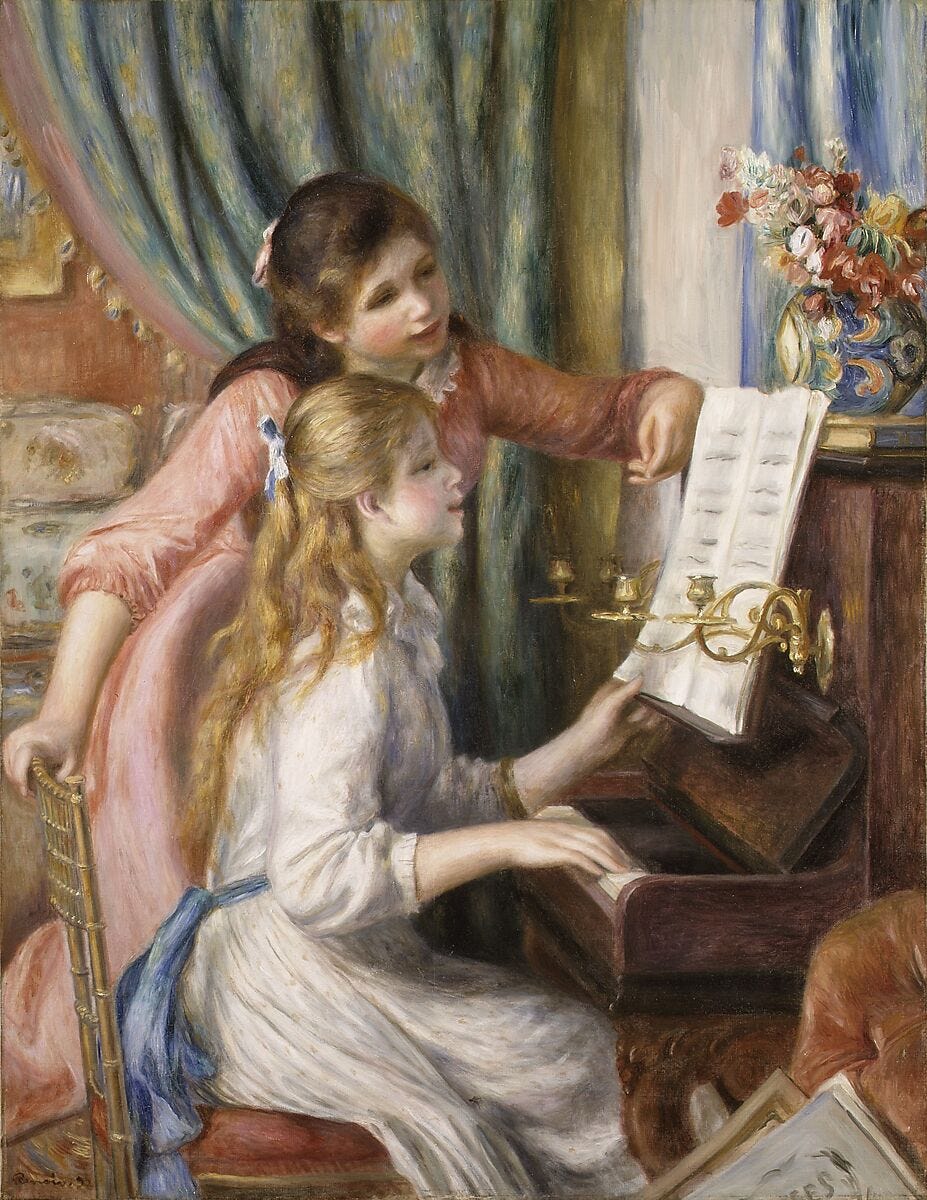By
fromI. Engaging My Kids' Curiosity, Analog Style
As a young Millennial, I have a sense that I lived through a brief golden age of useful search engines. For a fleeting yet formative period in my ever-curious life, typing some well-chosen keywords into Google often yielded a reasonably helpful answer. But I'm finding that, with the ascendancy (or should I say downward spiral?) of SEO and LLMs, search results seem to be more and more elusive, useless, and even nonsensical. As my children have now without a doubt entered their "Why" era, this presents a challenge--or an opportunity to experiment with older and lower-tech forms of wondering.
When one of my kids asks one of their innumerable questions about the world--foundational, incisive, hilarious, perspective-shifting, or full of pathos--sometimes, I'm able to give a first pass at an answer from my own knowledge or reasoning. Often, though, I don't have an immediate answer for the question. Formerly, I might have reached for my pocket Google machine for assistance, but I am beginning to shift that habit by cultivating the use of some time-honored alternative tools such as the books in our home and local public libraries, the knowledge of friends and family, and the sometimes frustrating but often rewarding skill of wondering aloud with Socratic questioning and guided observation.
As we practice these ways of knowledge-seeking together, I'm noticing some subtle yet profound shifts. I hear my child incorporating some of my new phrases into his vocabulary:
- "Mom! Let's look for a book about electricity at the library!"
- "I wonder if our body book has a page about how our eyes work."
- "Can we ask our neighbor if they know about these butterflies?"
- "Maybe they're working on the road so it will be safer for bicycles."
As I shift to a more effortful way of wondering, I also notice my own attention shifting to the question of attention itself; I find myself pondering what it means to seek knowledge and demonstrate love by giving my full attention (or at least as much of it as I can spare at any given time). I find myself relishing answers and how they're found, but I also find myself loving the questions themselves. And that, in a distractible and digital age, is a precious and unexpected gift.
II. From Streaming to Singing
Spotify recently hiked up their prices again, and it gave me the nudge I'd been needing to cut back heavily on my streaming of recorded music. We have always been a music-loving family, but for some time now, I've taken the digital path of least resistance and streamed much of my music, consuming rather than participating and listening rather than living. It's easy in our digital age to lose sight of the fact that, for most of history and in most of the world, unless we were royalty, we wouldn't have had professional, world-class musicians at our instant beck and call. Don't get me wrong--I am inexpressibly grateful that I can listen, at any time and in virtually any place, to Yo-Yo Ma, Chris Thile, and Edgar Meyer playing their Bach Trios. But I think I was missing an essential element of music when I was not participating in its creation.
I do not mean to toot my own horn (if such a pun may be permitted) with regard to musical skill. (Actually, I've never even attempted to play a brass instrument.) Rather, I like to joke that I'm in my Miss Mary Bennet era, playing and singing for my own pleasure, without regard to my own skill or lack thereof. But I'm trusting that with effort, over time, skill and taste can be cultivated. Moreover, it's incredibly satisfying when my son asks me to find sheet music for a particular song after hearing a recording of it or offers to sing his little sister a spontaneous little lullaby. He's learning that songs don't arise from some rootless nowhere, as the ethereal quality of digital music might suggest, but that human beings have written and sung them--and that he can too.
Inspired by a mention of Bach's keyboard suites in Dorothy L. Sayers's Gaudy Night, I recently dusted off a piano book from the lessons I took as a teenager and found two surprises. First, the book contains several excerpts from the French suites I've frequently listened to, recorded; and second, the easier pieces are not, as I'd assumed from the recordings, out of my technical reach anymore. In what slivers of time I can find or create, I am learning to play for myself some pieces I've so often enjoyed--no streaming necessary. Now that's music on demand!
If you would like to leave a comment, you can do so on “A Library of Unconformed Lives”.




